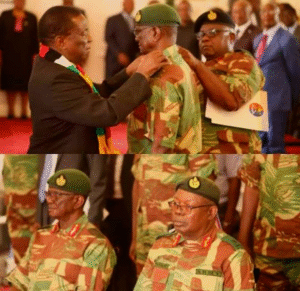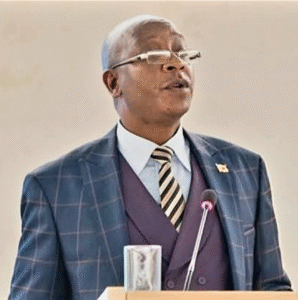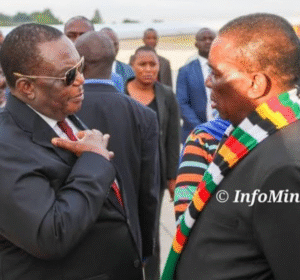ZBC UNDER SIEGE: POLITICAL APPOINTMENT UNDERMINES JOURNALISTIC FREEDOM IN ZIMBABWE

In a significant turn of events that could further compromise the independence of Zimbabwe’s state media, Charles Mungasa, a leading figure within the Zanu PF Youth League, has been appointed as the acting chief executive of the Zimbabwe Broadcasting Corporation (ZBC). This appointment is a clear sign of the ongoing political entrenchment within an institution that should ideally function as an unbiased public broadcaster.
Charles Mungasa is no stranger to the corridors of ZBC, having served as a board member prior to this new role. His political credentials are deeply rooted in his position as the Zanu PF Masvingo provincial Youth League secretary for administration. The control exerted by Zanu PF over ZBC is further exemplified by the composition of the ZBC board, headed by Helliate Rushwaya, a niece of President Emmerson Mnangagwa.
Mungasa steps into a role vacated by Assael Machakata, the former finance director of ZBC, who himself was an interim replacement following the suspension and eventual resignation of Adelaide Chikunguru. This latest shuffle at the top echelons of ZBC’s leadership underscores a troubling trend towards media capture—a phenomenon whereby governments and influential groups manipulate media operations to serve their own ends, severely impairing journalistic independence and integrity.
Media capture, particularly in state-owned entities, is executed through various mechanisms. These include regulatory domination, the politicization of media operations, and the strategic distribution of public advertising funds to sway media coverage. In Zimbabwe, this strategy extends to the politically motivated ownership of private media outlets, a tactic that has become increasingly prevalent.
At ZBC, the issue is not merely theoretical. The structure, management, and operational procedures of the corporation make it particularly susceptible to political interference. This is evident in the manner in which the leadership is appointed and how editorial decisions are influenced by political considerations rather than journalistic principles.
The implications of such a capture are far-reaching. At its core, journalism is meant to serve the public interest, offering unbiased reporting that informs, educates, and empowers the citizenry. However, when media outlets become extensions of political parties or interest groups, they betray this fundamental mission. The erosion of journalistic autonomy not only undermines the media’s role as a watchdog but also diminishes the quality of information available to the public.
For Zimbabwe, where the media landscape is already challenging, the entrenchment of political figures within the operational framework of its national broadcaster could spell a further decline in media freedom. This scenario is particularly concerning in a country where access to diverse and independent sources of information is crucial for democratic engagement and accountability.
As ZBC continues under the leadership of Charles Mungasa, the prospects for impartiality seem grim. This development serves as a poignant reminder of the fragile state of press freedom in Zimbabwe. It also raises important questions about the broader implications for governance and democracy in a country where the media is seen not as a vehicle for truth but as an instrument of political power.
This ongoing capture of ZBC by political interests not only diminishes the broadcaster’s credibility but also highlights the vulnerability of state media to manipulation. As the lines between government interests and journalistic integrity continue to blur, the hope for a truly independent public broadcaster in Zimbabwe remains uncertain. The situation at ZBC is a clear illustration of how media capture, once set in motion, can erode the foundational principles of journalism, leaving in its wake a weakened institution unable to fulfill its essential role in society.




